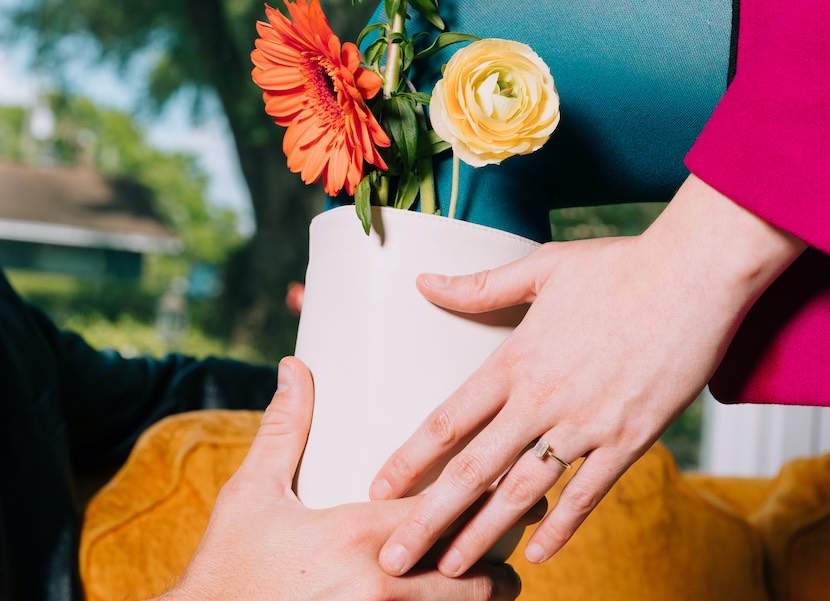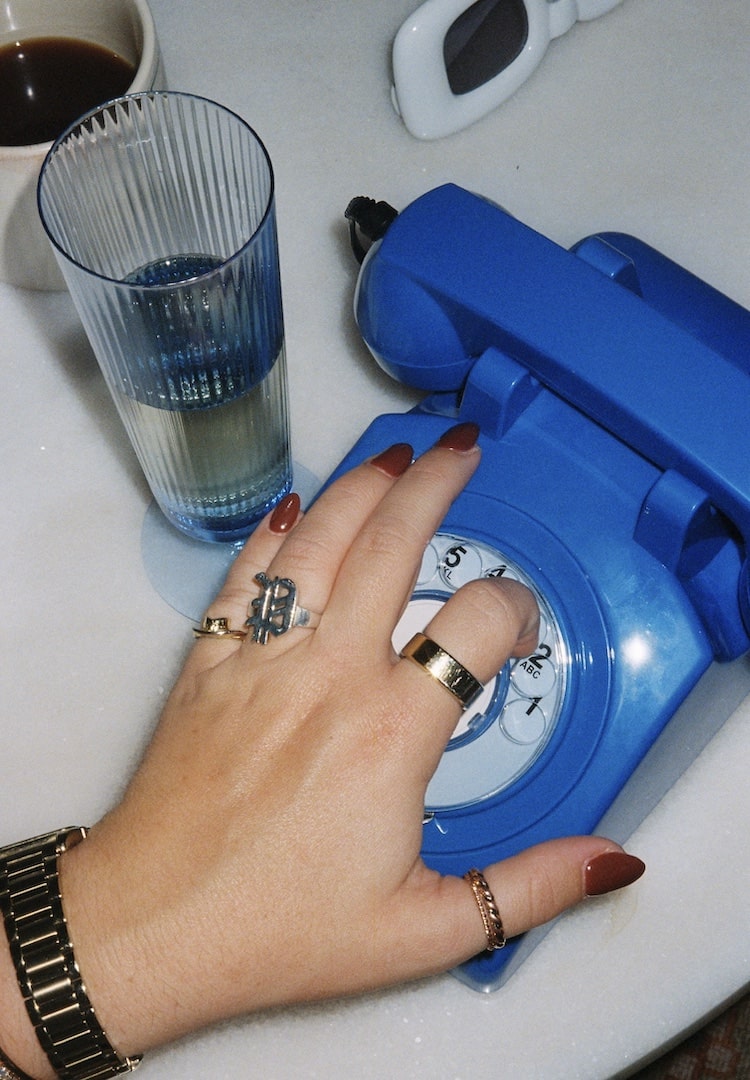A clinical psychologist on how to deal with relationship anxiety
WORDS BY DEANA STEPANIAN
“It’s like a fear of being rejected or abandoned by your partner.”
Doubting a relationship, whether platonic or romantic, is inevitable. There are often moments when we’re forced to consider hard truths or have to chew over whether someone’s taking more energy from us than they’re giving. It’s human to be aware of and question the dynamics of a connection, especially if it’s bringing up serious issues for either you or your partner.
Anxiety-based fears are often way more persistent and consuming, though. The relationship could be fulfilling and reciprocal, but somehow you’re stuck questioning your compatibility. While these thoughts can seem like intuitive revelations, or gut instincts, you might just struggle with an insecure attachment style.
Interested to hear how others navigate the world? Head to our Life section.
Your friend or partner could slightly shift their mannerisms or reply to your text late and suddenly you’re triggered, full of adrenaline and in a state of deep rumination. It’s exhausting, and understanding where exactly it all stems from is confusing, too. So, I reached out to Matthew Csabonyi, a clinical psychologist at the Awareness Psychology Clinic, to better grasp the topic of relationship anxiety and how to navigate it.
How would you describe relationship anxiety?
Relationship anxiety is something that we all experience, to some degree, in our romantic relationships. Therapists call it attachment anxiety. It’s like a fear of being rejected or abandoned by your partner.
You might find yourself constantly worrying about whether your partner truly loves you, or if they’re going to leave you. You might need constant reassurance or contact so you don’t feel so insecure. It can also make it tough to trust your partner or… express your feelings to them because you worry they might not understand or… they might leave you if you do or say the ‘wrong thing’. It can cause a lot of jealousy.
While a little bit of anxiety is normal, too much of it can really interfere with the health of your relationship, because the neediness that comes with it can be a lot for your partner to deal with. This can create a really unhealthy cycle, where you can’t just relax and be happy in relationships.
Where does this anxiety generally stem from? What causes it?
Not to sound too stereotypically like a therapist, but… it stems from our relationships with our own parents and the lessons we learned while growing up. If we’ve experienced our parents [behaving in a way that’s] unpredictable or unstable while we were growing up, it makes us anxious about how to keep them happy and makes us worry that we might lose their love or affection if we don’t do the right thing.
When we start getting into our own romantic relationships, we tend to have the same anxieties [that] love is very conditional. It can also develop if we’ve had bad adult relationship experiences, like if we’ve been betrayed or had reasons to lose trust in people. Basically, if we’ve been burned in relationships before, we can unintentionally project that lack of trust onto our future relationships.
How can you tell the difference between anxiety and genuine doubts in a relationship?
There are a few tell-tale signs. I think, generally, people know if they have attachment anxiety because it’s been a pattern across multiple relationships. For example, you might find yourself getting really anxious if you haven’t heard from the person you’re dating all day, even though you know, logically, that they’re at work and are likely to just be busy.
Still, your feelings get the best of you and you feel your mind going a million miles an hour… and… you can’t resist the urge to try calling or texting multiple times and asking if anything is wrong. For people with attachment anxiety, their feelings tend to get the best of them, and they find it overwhelming. And unfortunately, knowing the facts – like in the example I just mentioned – doesn’t seem to help them feel any less anxious.
If there is any room for doubt… someone with attachment anxiety will grasp onto that uncertainty and find it impossible not to worry about it. Basically, when facts match feelings, it’s probably reasonable anxiety, but when facts don’t match feelings, or when feelings are way more extreme than the facts warrant, it’s probably not.
How should you communicate your anxiety about your relationship with your partner?
I think it’s really important to communicate to your partner about your anxiety, but do it in a way that doesn’t make them feel… responsible. The pressure that anxious attachment can make a partner feel can be really suffocating in a relationship. So, you want to let them know that this is something you struggle with, but also that you want to work on learning how to manage.
It’s also really good to tell your partner what will help you be less anxious in the relationship without being too demanding. For example, you might let them know that… it’s hard for you to share what you’re really thinking… because you’re worried about being rejected.
There’s nothing inherently wrong with enjoying your partner’s attentiveness or expressions of love, but you can help keep your requests reasonable by checking that your requests make both of you comfortable, rather than the focus just being what makes one person feel less anxious. So, always make sure you return the favour and ask them what would help them in the relationship.
Can relationship anxiety affect other relationships besides romantic ones?
Absolutely. I’m actually writing a course at the moment about anxious relationships, or attachment anxiety in the workplace, both between colleagues and between bosses and employees. I think the reason it’s so common and mostly discussed in terms of romantic relationships is because the stakes are so high! I mean, a broken heart arguably hurts a lot more than a negative evaluation from a boss – although that definitely sucks, too.
What are some tips to help cope with relationship anxiety?
There are heaps. My main tip [is] taking slow breaths, which can help activate your body’s relaxation response. Mindful practices like yoga or meditation can also be helpful if you practice regularly… and there are apps and YouTube videos that can guide you through breathing routines.
Immersing your face in cold water can slow your heart rate down and make you feel less panicky. Reaching out to friends or supportive people can help reset your thinking to be more fact-focused when your feelings are running away with you.
But if relationship anxiety is an ongoing problem for you, it’s worth considering seeking help from a qualified therapist who understands attachment or relationship anxiety, and also the trauma that it might stem from. The real work in managing relationship anxiety is learning to tolerate it without seeking reassurance from your partner or trying to control it. It can be hard, but with small steps and the support of a therapist, it’s doable.
For more on relationship anxiety, head here.










